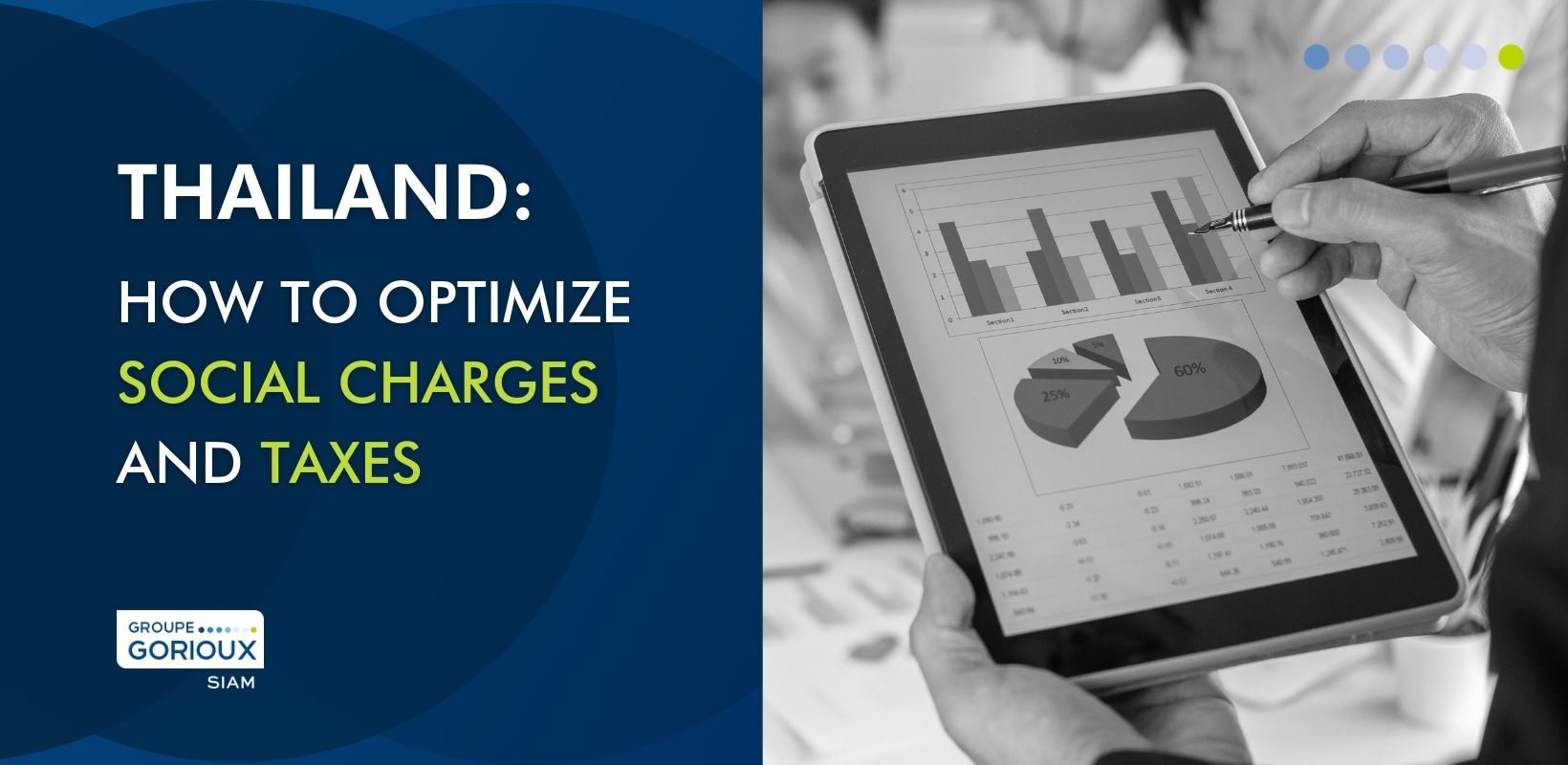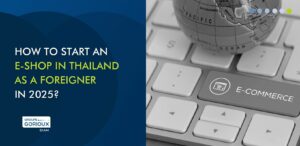Are you running or planning to start a business in Thailand? If yes, you might find taxes and social charges a bit confusing. But here’s the good news: with the right strategies, you can optimize your costs, protect your cash flow, and make your business more profitable. Below are the key upcoming changes and strategies to legally reduce your tax burden and maximize your benefits.
1. Social Charges – What’s Changing in 2025?
In 2025, potential changes are expected regarding social charges in Thailand, particularly the contributions to the Social Security Fund (SSF). Currently, both employers and employees contribute 5% of salary, with a monthly cap of 750 THB, while the government contributes 2.75%. The Thai government has proposed raising its contribution to 5%, aligning with the rates for employers and employees, and is also considering a revision of the contribution ceiling.
These changes would lead to higher contributions but also improved benefits, such as retirement allowances, health insurance, and maternity leave, better aligned with the current economic climate. Moreover, it’s also important to consider other obligations, such as the worker compensation fund and health insurance, which complement the social security system.
o
2. Corporate Taxes – What You Need to Know
In Thailand, the standard corporate tax rate is currently set at 20%. However, a major change is expected in 2025: a global minimum tax of 15% will apply to multinationals with profits exceeding 750 million euros.
The goal is to align tax rates worldwide. Small and medium-sized business (SMB) have the opportunity to optimize their taxes through various deductions, including those related to training, innovation, and green energy expenses.
Moreover, SMB can improve the efficiency of their international payments by reducing withholding taxes, which range from 3% to 15% depending on the circumstances, in order to maximize their profitability. Therefore, tax optimization provides businesses the opportunity to reduce their taxes while complying with Thai law.
o
3. Tax Incentives – Are You Taking Advantage?
The Board of Investment (BOI) in Thailand offers a variety of tax incentives designed to encourage investment in strategic sectors such as manufacturing, technology, agriculture, and renewable energy. Companies that meet the BOI’s criteria can benefit from tax exemptions, reduced corporate tax rates, and other advantages to stimulate the expansion of these strategic sectors. These incentives include tax exemptions that can range from 3 to 13 years, reductions on import duties, and significant tax deductions for research and development expenses, which can reach up to 200% of incurred costs.
Additionally, special tax incentives are granted to companies operating in special economic zones (SEZs), covering areas such as logistics, advanced technologies, high-tech, and other innovative industries. In this context, these actions aim to enhance national competitiveness, attract foreign capital, and support initiatives that have a positive impact on the local economy. The BOI allows businesses to reduce their tax burden while contributing to Thailand’s economic growth.
ooo
4. Personal Income Tax – Keep More of Your Earnings
Entrepreneurs must also consider personal income tax, as Thailand operates on a progressive tax system with rates ranging from 0% to 35%, depending on income. Understanding how to optimize tax obligations can lead to significant savings.
- Tax allowances provide an opportunity to deduct expenses related to healthcare, education, and dependent care, reducing overall taxable income.
- Retirement savings contributions to approved pension funds or life insurance policies can also lower tax liabilities while securing financial stability for the future.
- Charitable donations offer another tax advantage, as certain contributions are tax-deductible, and donations to educational or government-approved projects may even qualify for double deductions.
For expatriates, tax residency strategies can play a crucial role in tax optimization. Thailand offers a non-resident tax status under specific conditions, and structuring tax residency effectively can help those who split their time between multiple countries reduce their tax burden. With the right planning, these strategies can help entrepreneurs maximize their earnings and minimize unnecessary tax expenses.
o
5. Smart Tax Planning – Simple Steps for Entrepreneurs
Tax optimization is not about avoiding taxes but about making informed and strategic decisions. Choosing the right business structure is crucial, as limited companies, partnerships, and sole proprietorships are subject to different tax regulations. If you plan to scale, a Thai Limited Company often provides the most tax-efficient framework.
- Keeping accurate records is equally important since proper accounting helps you claim deductions and avoid unnecessary fines. Using professional accounting software or hiring a tax consultant can minimize costly errors.
- Planning business expenses effectively can also make a significant impact, as costs such as rent, utilities, advertising, and employee training are tax-deductible. Properly structuring these expenses and payments can reduce your overall tax burden.
- Meeting tax deadlines is another essential aspect, as late filings can result in penalties. In Thailand, corporate tax returns must be filed within 150 days after the fiscal year ends, and VAT filings are required on a monthly basis. Businesses working with international clients or suppliers can benefit from Double Taxation Agreements (DTAs), which prevent income from being taxed twice. Thailand has treaties with many countries that allow businesses and individuals to optimize their tax liabilities when dealing with foreign partners.
Given that tax laws frequently evolve, consulting a professional is highly recommended. A trusted advisor like Gorioux Siam can help navigate complex regulations and implement the best tax strategies for your business.
o
6. VAT and Other Indirect Taxes – What You Should Know
In Thailand, the standard Value-added tax (VAT) is 7%, although exemptions and reductions exist based on the type of activity. For example, VAT exemptions are granted to key sectors such as education, healthcare, and export to encourage growth in these areas. Companies with annual revenues exceeding 1.8 million THB must register for VAT and collect it from their customers. This also involves rigorous tax reporting to remain compliant with the country’s tax obligations.
In addition to VAT, several businesses are required to pay specific taxes (SBT), including banks, leasing companies, and those in the entertainment industry, such as clubs or cinemas. These taxes vary depending on the type of activity and are calculated separately from VAT.
Save Money, Grow Faster
Taxes and social charges might seem complicated, but managing them well can boost your business success. When you optimize taxes, you have more resources to invest in your team, your products, and your future.
Thailand is full of opportunities for entrepreneurs. Stay informed, make smart choices, and let 2025 be a year of financial success!
Need help with tax planning? Don’t hesitate to contact us via email at info-siam@gorioux.com, or by phone at +66 (0)200-48-549 or +66(0)33-0032-31.
For more information, visit our official pages on Facebook and LinkedIn!
Check out our other articles: HERE



